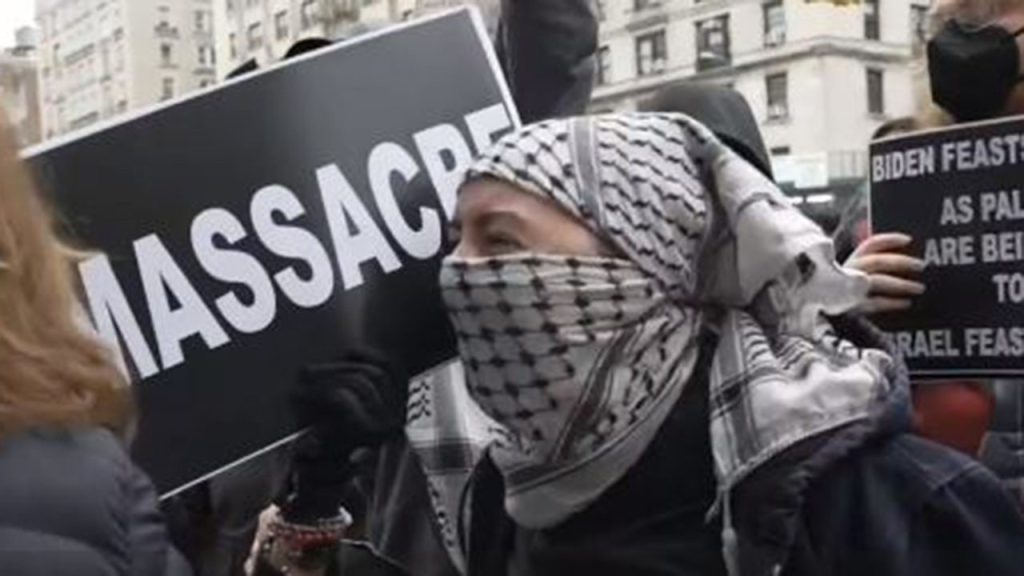Pro-Palestinian protesters gathered near Columbia University were heard chanting pro-Hamas slogans, including “We are Hamas” and “Long live Hamas.” Videos captured the aggressive behavior of the protesters, with one even calling a bystander a pig for questioning her affiliation with Hamas. Over 100 protesters were arrested for setting up an encampment on campus and the demonstrations continued on Friday. White House press secretary Karine Jean-Pierre responded by stating that no president has done more to combat antisemitism than the current president, who has been clear in standing against bigotry and hatred, particularly after the events in Charlottesville.
Amid the anti-Israel protests at Columbia University, a Jewish student was reportedly told to “kill yourself.” The FBI declined to comment on whether they would investigate the individuals who were chanting support for Hamas, an organization designated as a terrorist group by the U.S. government. These protests come in the wake of increased tensions after Hamas launched an unprovoked attack on Israel in October, leading to a war between the two sides. The demonstrations reflect a broader trend of universities becoming sites for anti-Israel activism and backlash.
The White House has emphasized the importance of combating antisemitism and standing against hate in all its forms. The current president has been vocal about his commitment to fighting antisemitism, particularly following the events in Charlottesville that highlighted the deeply-rooted bigotry and hatred that still exist in society. The administration’s national strategy emphasizes that any targeting of Jews based on their beliefs or identity, or any singling out of Israel due to anti-Jewish sentiment, is considered antisemitism and is not acceptable.
The campus of Columbia University has become a focal point for demonstrations and protests against Israel in the aftermath of the conflict with Hamas. The aggressive behavior and pro-Hamas slogans used by the protesters have sparked controversy and raised concerns about potential antisemitism. The demonstrations come as part of a broader trend of increased activism against Israel on college campuses, with tensions running high following the recent conflict between Hamas and Israel.
The events at Columbia University illustrate the complex and divisive nature of the Israeli-Palestinian conflict, with supporters of both sides expressing their views and engaging in protests. The involvement of students and the broader community in these demonstrations highlights the passion and dedication of those who are committed to advocating for their beliefs. The ongoing conflicts in the Middle East have reverberated in various parts of the world, leading to increased activism and engagement on university campuses and beyond.
In conclusion, the protests at Columbia University are just one example of the ongoing disputes and tensions surrounding the Israeli-Palestinian conflict. The aggressive behavior and contentious slogans used in the demonstrations have raised concerns about potential antisemitism and hate speech. The response from the White House and calls for combatting antisemitism emphasize the importance of standing against bigotry and hatred in all its forms. The protests reflect a broader trend of heightened activism and engagement on college campuses in relation to the conflict between Israel and Hamas, with emotions running high and tensions continuing to escalate.


